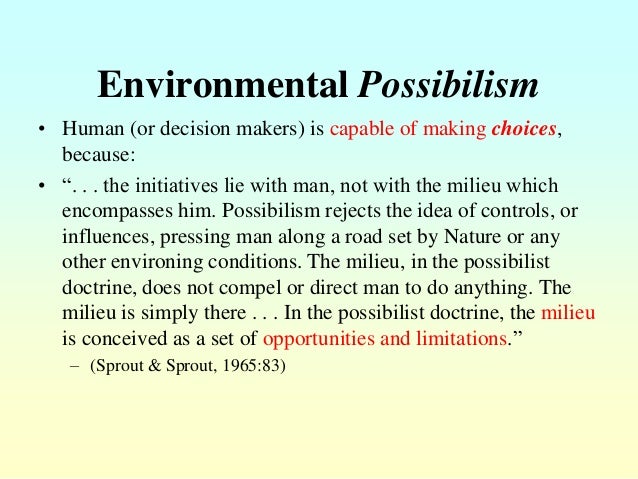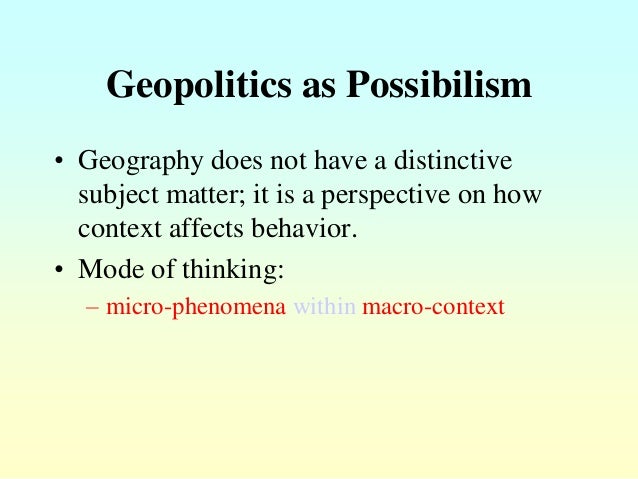



Rise of Possibilism: The possibilist paradigm views that the physical environment tends to provide the opportunity for a range of possible human responses and that people have considerable discretion to choose between them through their creative genius and creativity. According to Spate, "human action was represented as not so much a matter of all-or-nothing choice or compulsion, but a balance of probabilities". While the environmental determinists, influenced by the cause and effect relationship of Darwin, asserted that human activities are controlled by the physical environment, the possibilists opined that physical environment provides the opportunity for a range of possible human responses and the people have considerable discretion to choose between them. The term was proposed as a midway between a stark environmental determinism of Ratzel and a radical possibilism of Febvre, Lablache and Sauer. The view that although the physical environment does not uniquely determine human actions, it does nevertheless make some response more than others. The possibilist paradigm views that the physical environment tends to provide the opportunity for a range of possible human responses and that people have considerable discretion to choose between them through their creative genius and creativity.


 0 kommentar(er)
0 kommentar(er)
